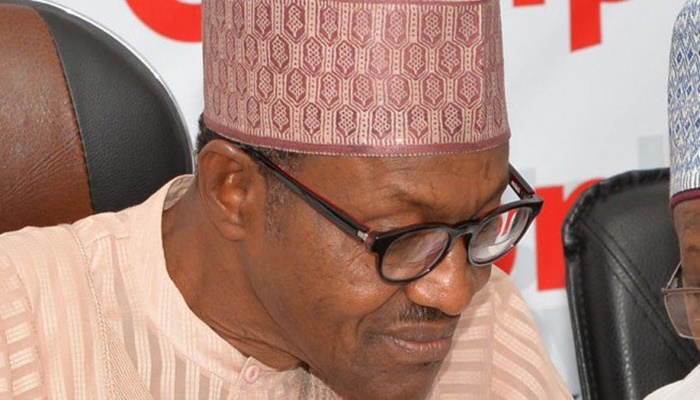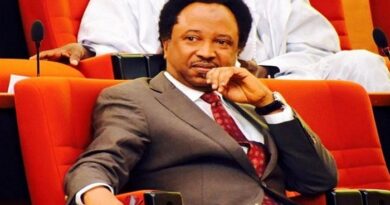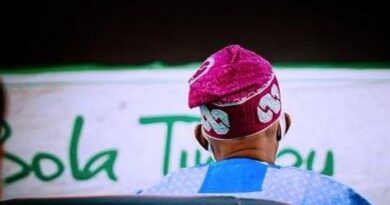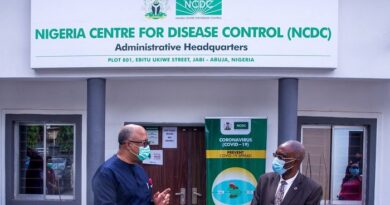Buhari VOA interview transcript
This is a translation and transcript of Hausa service managing editor Aliyu Mustapha’s in-language interview with Nigerian President Muhammadu Buhari. He and Peter Clottey jointly interviewed the 75-year-old leader on Monday evening, hours after Buhari became the first African leader to visit the Trump White House on April 30, 2018.
VOA Hausa service: Why did you come to the U.S.?
Muhammadu Buhari: I was invited by President Trump, and I was given time, and I promised to come, and God made it possible. The U.S. government understands the importance of Nigeria in Africa and the world at large. For instance, during the Obama era, we tried to get some jets to help us in the fight against terrorism in the northeast, which was declined. But as soon as President Trump came into office, he gave the green light and advised us to make funds available. He said the U.S. will sell the jets to us. We had each approached Brazil and the UAE, but they told us that based on the agreement they had with the U.S., they cannot sell or give anyone these jets until the U.S. agrees. But the U.S. refused at the time, until the arrival of Trump, who granted our request and gave us [a] price.
VOA: Apart from the jets, which other agreements did you have?
Buhari: Not agreements, just discussions. The first one is the information being given to them that Christians are being killed in Nigeria. But what happened in the church also happened in the Southeast and the North, and they just say it is herdsmen that are killing them. Those making these allegations against the herdsmen know that herdsmen, as we know them, only carry sticks. Going about with guns is a new thing, and those making the allegations know that conflict between farmers and herders has a long history, even before we were born. Therefore, it is wrong to say the conflict is between Fulani and Tiv or other tribes like in Taraba. What of Zamfara, where more people were killed than in Taraba and Benue put together? People need to understand that it is mischief that makes people bring in religion or ethnicity.
VOA: Many are commending you on the degrading of Boko Haram in the Northeast, but reports indicate that gunmen are now raiding villages in Zamfara. I am aware you have ordered the establishment of military formations in the states and neighboring Katsina and others. Is there any other measure you are taking to curb this menace of insecurity?
Buhari: Measures being taken are to increase the number of police officers and to equip them well. I have asked that the police recruit 6,000 more personnel, and that they should recruit across the 774 local government areas in the country, instead of going to motor parks and markets to just pick people anyhow.
VOA: Governors have been asking for the state police. What is your view on that?
Buhari: I want the Nigerian constitution to be consulted first and see what it says. If it says they should be allowed, then they should be allowed. But don’t forget: How many times did we have to release money to states in the name of bailouts to enable them [to] pay salaries? How many states are able to pay their workers on time? And you add the police to them? People should look at this matter very well.
VOA: But you are not quite convinced about the state police then?
Buhari: No, I am not convinced. We should have solved the current insecurity in the Northeast and South by now. Are the states able to shoulder the burden of the police? You cannot just give someone guns and ammunition, train him, and refuse to pay him. You know what will eventually happen.
VOA: You came into office with three major campaign pledges: insecurity, corruption and the economy. And one of the things you came up with is the TSA [Treasury Single Account, a structure for consolidating inflows from all government agencies into a single account at Nigeria’s central bank]. However, bribery and corruption is still high in Nigeria. Are there any other measures you are planning to take?
Buhari: Well, there is not any other measure other than to ensure that whoever is arrested is prosecuted for all to see. We should have had a lot more arrests and prosecutions by now. [The] EFCC [Economic and Financial Crimes Commission] has done a lot. They will investigate and send accused persons [to] court, and Nigerians would be adequately informed. Those who are saying we have not done enough in that regard are right. What we don’t want is to take people to places where the judges may not be able to convict them appropriately. Now, we will select those who will dispense justice well and give them time and necessary evidence, such as the bank balance and properties owned by individuals in comparison to their wages. They will be asked how to prove how they acquired the difference; otherwise, everything will be taken away and they will be prosecuted.
VOA: In Bauchi recently, you mentioned that everyone should be careful in your second term because of the way you plan to deal with offenders. What measures are you planning to take?
Buhari: By the time we set up these special courts and prosecute offenders, I am sure citizens will know that we are serious. Those who embezzle public funds should be ready to face the consequences.
VOA: Your recent comments in England on Nigerian youths generated a lot of controversy. What did you really mean?
Buhari: You know, they say we are over 180 million to 200 million people in Nigeria, and 60 percent are youth below the age of 30. In the North, for instance, most have not attended school, or they abandoned halfway. … Most of them have no job, just idling away. People like them, even if they go to the South, for instance, what they will make will not be enough to even pay their rent, not to talk of feeding, clothing and transport back home.
That has not been explained enough, and you know the media, especially the print, are simply doing whatever they like. We had two successful farming seasons. People went to farm and did very well, but no one is talking about that — only insults. That is why the minister of information, Lai Mohammed, had to respond to the letter of insults released by [former President] Obasanjo. Recently, I had to come out and state that from 1999 to 2014, anyone who carries out a study here in America or Europe or India will know that we were producing 2.2 million barrels of crude oil daily at a price of at least $100 per barrel. In those 16 years of PDP [Peoples Democratic Party] rule, Nigeria was getting 2.1 million times $100 every day, every week. But when we came on board, the price fell to between $37 to $38 and hung around $40 to $50.
I went to the CBN [Central Bank of Nigeria] — the governor of CBN is here — and asked him how far, and he said nothing was left, apart from debts. I said, “But this is what the country made?” And he said, yes, he knew. And I asked him, “Where is the money?” All gone. Nigerians know that there were no roads or rail lines. There was no power, despite the billions of dollars spent. Only God will judge this thing.
VOA: Since you have decided to seek re-election, what are the new things you are planning to do?
Buhari: We have not even finished what we are doing now. Insecurity is still a problem. The worst thing that Boko Haram [militants] are doing now [is] to get small girls, hypnotize and put explosive devices on them to go and detonate in mosques, churches, motor parks and markets and kill people.
However, they are not able to take over any territory now, although, even today, I read in some newspapers that Boko Haram are still holding territory. Well, they may still be somewhere in Sambisa Forest, but the Nigerian army has prevented them from coming out.
VOA: How do you relax, apart from reading newspapers? Do you listen to music, for instance?
Buhari: I don’t get to listen to music, but I find time to rest. When I was a general, I gave orders. But now I receive orders. The doctor is here. He always insists that I eat well and rest. That is why many are surprised how quickly [I] recovered.
-VOA




